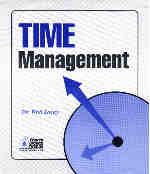
Those of you familiar with Stephen Covey's book,
The 7 Habits of Highly Effective People, will recognize the term Quadrant II manager. This ideal manager recognizes that time spent on the important but non-urgent aspects of her business are the most vital for success. The Quadrant II manager spends time during the work day on long-term planning, developing relationships and training staff to take on delegated tasks. Note that she spends virtually no time answering email, plowing through an inbox or attending meetings.
Many leaders operate solo; they're the cook, maitre d', busboy and bottle washer. Many have families to attend to and are desperately trying to keep all the plates on the tray without dropping any. I believe that's why so many fail. There's no way to manage that kind of chaos the way most of us try to manage.
If you find yourself working night and day and still feel you're accomplishing nothing, stop, take stock and try a new approach.
Measure ProductivityI'm going to assume that you have a long-term (five years) and shorter-term (six months to one year) vision. Your daily activities and actions are guided by this vision, so it's critical to start with a solid blueprint.
This big vision will be accomplished in small steps, taking action consistently over time. Once you acknowledge that you can't possibly do everything you think you should do, have to do or want to do, ask the question "What is the best use of my time and energy today?"
Beth and James Hood, co-founders of "Where's the Map" a site that helps high school and college students make their transition into the working world, have one- and five-year plans for their income, products and impact.
They break down that vision into smaller pieces that I call spokes, and these are what determine their daily actions. For example, they have a long-term goal of being sought-after speakers on college campuses. The spoke they are working on is "Build a national platform for speaking." Activities that might flow from that spoke include: Create a speaker and press kit, schedule 10 radio interviews a month, add 1,000 people per month to the Web site, and refine presentation skills.
Each day they make a list of the six most important things they can do to move forward on their spoke. The actions are simple, small and measurable. They put no more than six on the list at a time. Then they schedule a two-hour chunk of time during the day when they can turn off their phone and focus on taking those six steps. If they don't finish, they roll the items over to the next day, making sure to finish the carry-over items first.
They also have spokes that relate to the deeper values in their lives: their marriage, their home and physical environment, service to the community, spiritual practice, etc. Each of these has action items as well.
In this way, the Hoods accomplish six steps toward their long-term goal in a short period of time each day. At the end of the day, they can measure their productivity in small, consistent actions. The list becomes a sort of diary of accomplishments, and they can refer to it for motivation.
Juggling Your ProjectsTake an inventory of everything you do in your day. If you're like most leaders, you didn't consciously choose those projects. Take 10 minutes right now, and make the following lists:
- The projects I'm currently working on.
- The roles I'm handling (parent, spouse, manager, thought leader, accountant, mail clerk, etc.) Be honest and list them all.
- All the things that are on your mind that you aren't getting to (unfinished business, creative pursuits, new project ideas, etc.).
Now, looking through the filter of your long-term goals, which of these roles and projects emerge as priorities? Which are the ones that if you paid full and consistent attention to would make the biggest difference in your feelings of vitality, your relationships and your success?
If you take these top priorities and apply the method outlined in the section above, you'll see an immediate increase in energy and productivity.
Doing "enough" is a decision, not a thing. If you're clear on your
VISION, have balanced your priorities to include health, relationships and inner work, and you are taking small, consistent actions each day, you are doing the best you can. Act as if you've done enough, acknowledge yourself, rest and rejuvenate, and watch your results expand.
[Based on TheStreet.com by twocents@thestreet.com (Entrepreneur.com)]
 Dear God,
Dear God,
